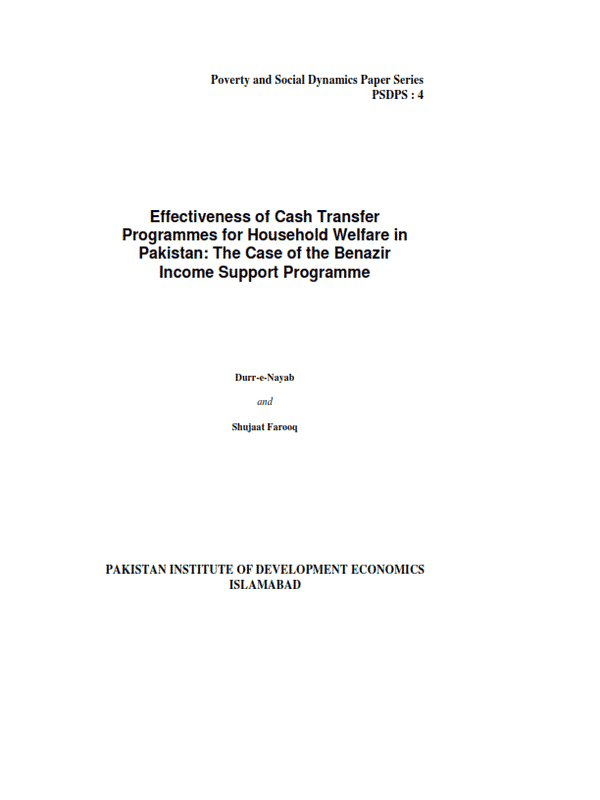Effectiveness of Cash Transfer Programmes for Household Welfare in Pakistan: The Case of the Benazir Income Support Programme
Cash transfer programmes are widely considered a ‘magic bullet’ for reducing poverty. Whether their impact on poverty reduction is as incredible as claimed is debatable, but they are gaining credibility as an effective safety net mechanism; consequently, they have become an integral part of inclusive growth strategies in many developing countries. As shown by Ali (2007), inclusive growth rests on three basic pillars: (i) the generation of full and productive employment, (ii) capability enhancement and skill development to broaden people’s access to economic opportunities, and (iii) a basic level of wellbeing by providing social protection. Safety nets are at the core the last pillar, and are provided mainly through cash transfers, which can be conditional and unconditional.




